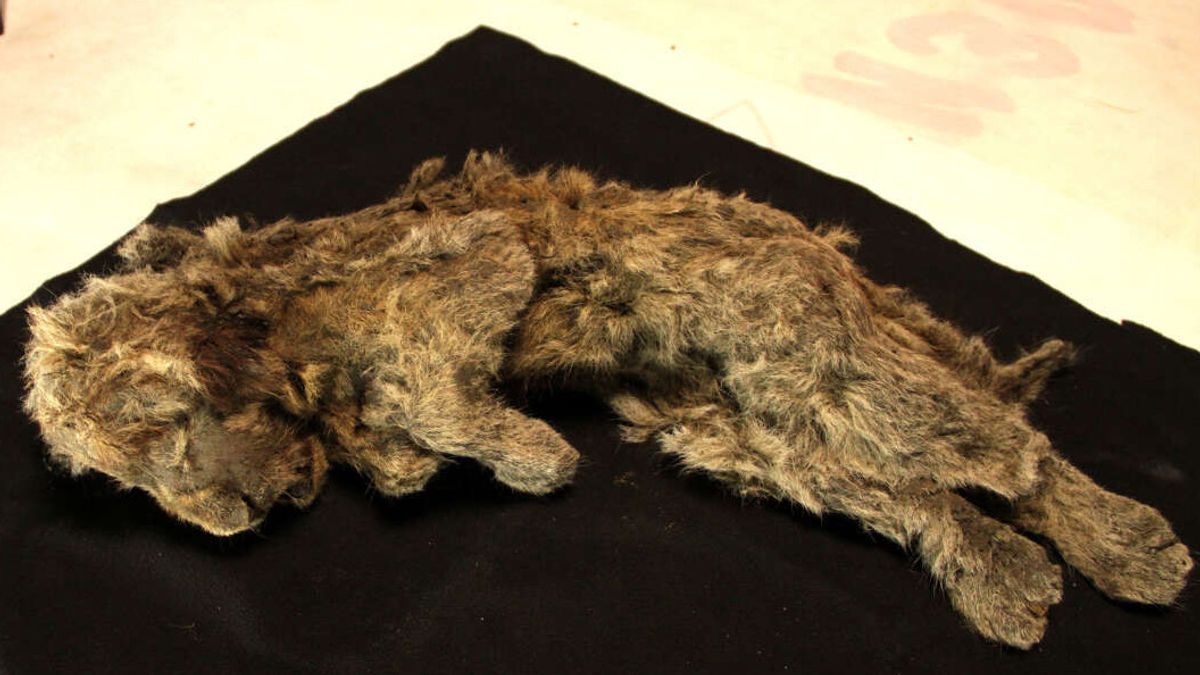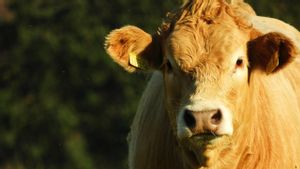JAKARTA - An accidental valuable discovery, when the body of an ancient lion cub estimated to be 28,000 years old, was found relatively intact in the North Pole region.
Launching Euronews August 6, this discovery occurred in early autumn 2018, when local ancient mammoth tusk hunter Pavel Efimov found it at a depth of seven meters beneath the Siberian permafrost layer of the Arctic.
In keeping with a long-standing working relationship, he contacted researchers at the Siberian branch of the Russian Academy of Sciences in Yakutsk. A team was deployed to the site in Belaya Gora, on the banks of the Indigirka River.
What they found there was one of the most beautifully preserved Ice Age animals ever found, a 28,000-year-old cave lion cub, huddled under a layer of ice with its teeth, skin, claws, and even whiskers relatively intact.
The lion cub, which scientist Dr. Valery Plotnikov and his colleagues named Spartak, was found just 15 meters from another cave lion cub, Boris, that locals had found the previous year.
These two ancient lion cubs were originally thought to be siblings. However, a large study conducted identified the two living apart by more than 15,000 years.
Carbon dating puts Boris at 43,448 years. A CT scan and genetic tests also determined that the younger of the two was the body which was later found to be female, hence the name was changed to Sparta.

Cave lions have been extinct for about 14,000 years. The team that then went to carry out the excavation, made up of top paleontologists from Russia, Sweden, Japan, the United States, and the United Kingdom, could hardly believe their eyes.
"It was absolutely amazing," Love Dalén, a professor of evolutionary genetics at the Center for Paleogenetics in Stockholm, told Euronews.
"You know you might find something, but this seems to have died only two days ago," he continued, describing the amazement of this relatively intact find.
Part of the ice sheet had melted around Sparta, he said, but nevertheless, the team had to be 'very careful' removing the specimen from the cave, clearing some of the mud before placing it on a stretcher.
The bodies of these two ancient animals arrived in Yakutsk in November 2018 and January 2019, to then undergo rigorous testing for infectious diseases, including anthrax, which can lie dormant for thousands of years before being scanned to investigate the condition of their bones and soft tissues.
The newly published study found that these two ancient lion cubs were thought to be only one to two months old when they died. There was no sign of them having been killed by predators, suggesting they may have fallen and been trapped, or buried in a landslide.
It also yields some important clues about the evolution of the Eurasian cave lion. The golden coats of the two cubs were similar to those of today's African lion cubs, but with a long, thick undercoat that protected them from the cold.
The scientists also found that their teeth had erupted at an earlier age than is the case with African lions today, suggesting an adjustment due to harsher winters, requiring lion cubs to develop faster and be able to eat meat at a younger age.
A full autopsy to examine separate aspects such as the guts of the offspring, as well as the full genetic sequence, could be performed in the future. Meanwhile, results
For now, Prof. Dalén said this particular paper was very exciting, as a result of a great collaboration between scientists.
"Sparta is probably the best-preserved Ice Age animal ever found, and more or less undamaged apart from his slightly ruffled fur. He even has a preserved mustache. Boris is a bit more damaged, but still pretty good," Dalen said as quoted by CNN.
SEE ALSO:
To note, the collaborative relationship between the researchers and local mammoth tusk hunters in Yakutsk, Siberia, developed into a unique relationship, helping researchers discover amazing things from deep in the mud and ice sheets.
The English, Chinese, Japanese, Arabic, and French versions are automatically generated by the AI. So there may still be inaccuracies in translating, please always see Indonesian as our main language. (system supported by DigitalSiber.id)


















